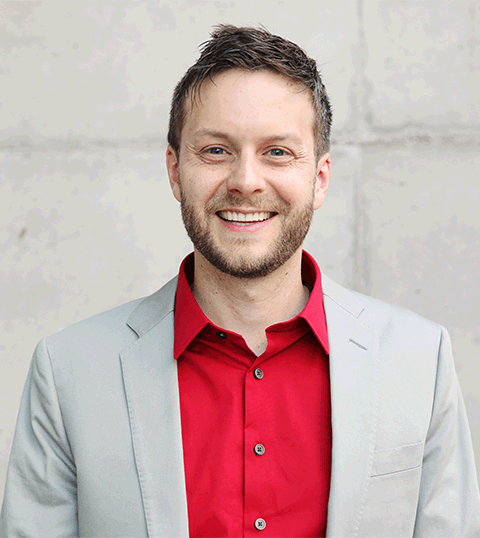Why Counseling?
Paul Krauss is a licensed counselor and offers professional counseling to the community in Grand Rapids, MI. You can call Paul at 616-365-5530 or contact at https://healthforlifegr.com/contact/. Paul’s main focus is helping people with whatever is going on in their lives. Paul also pays attention to research. Find out why counseling could be the help you have been looking for.
In the Great Psychotherapy Debate (Wampold, 2001), studies demonstrated that if there are two groups of people with similar problems, those who receive counseling will be better off than 79% of those who do not receive counseling.
Counseling is also known as Psychotherapy.
With an effective therapist, science shows that psychotherapy even works better in the long-term and is more enduring than medication. In fact, not only is it more cost-effective, but psychotherapy leads to fewer relapses of anxiety and mild to moderate depression than medication use alone—so much so that Norwegian Health Authorities have issued new guidelines concerning treatment of mild to moderate depression and anxiety, stating that psychological interventions, not medications, should be applied first. (Brownawell & Kelley, Monitor on Psychology, October 2011, Vol 42, No. 9)
“Not only is psychotherapy widely practiced, it is effective:
Those who receive psychotherapy achieve much better outcomes than they would have had they not received psychotherapy (Lambert & Ogles, 2004; Wampold, 2001, 2007).
In clinical trials, psychotherapy has been shown to be effective in treating depression, anxiety, marital dissatisfaction, substance abuse, health problems (including smoking, pain and eating disorders) and sexual dysfunction, and with various populations, including children, adolescents, adults, and elders (Chambless et al., 1998).
Indeed, psychotherapy is more effective than many accepted, but expensive, medical practices, including interventions in cardiology treatments, geriatric medicine and asthma (Wampold, 2007). Psychotherapy is as effective as or more effective than psychotropic medications for various mental disorders, including many depression and anxiety disorders, and results in lower relapse rates than medications (Hollon, Stewart, & Strunk, 2006;
Imel, Malterer, McKay, & Wampold, 2008).
In addition, outcomes in real-world clinical practice are comparable those psychotherapy clinical trials (Minami & Wampold, 2008).”
Read the full article here: https://www.apa.org/about/policy/resolution-psychotherapy
The American Psychological Association’s resolution on psychotherapy effectiveness contains more than 50 peer-reviewed studies on psychotherapy and its effectiveness in treating a spectrum of health issues and with a variety of populations, including children, members of minority groups and the elderly.

Key findings of the resolution:
1 Research demonstrates that psychotherapy is effective for a variety of mental and behavioral health issues and across a spectrum of population groups. The average effects of psychotherapy are larger than the effects produced by many medical treatments.
1 Large multi-site and meta-analytic studies have demonstrated that psychotherapy reduces disability, morbidity and mortality; improves work
functioning; and decreases psychiatric hospitalization.
1 Psychotherapy teaches patients life skills that last beyond the course of treatment. The results of psychotherapy tend to last longer than
psychopharmacological treatments and rarely produce harmful side effects.
1 While medication is appropriate in some instances, research shows that a combination of medication and psychotherapy is often most effective in treating depression and anxiety. It should also be noted that the effects produced by psychotherapy, including those for different age groups and across a spectrum of mental and physical health disorders, are often comparable to or better than the effects produced by drug treatments for the same disorders.
(Research Shows Psychotherapy Is Effective But Underutilized, American Psychological Association, August 9, 2012)
A. Clinical trials have shown that psychotherapy is as effective as psychiatric medications for depression and anxiety without the disagreeable side effects such as weight gain, sleep problems and loss of libido. So why is it that so many people are prescribed drugs first when they are exhibiting psychological distress and psychotherapy second, if at all?
A. It is indeed disturbing to know that, despite the effectiveness and safety of psychotherapy, increasing numbers of patients are being treated with psychiatric medications. The explanation for this phenomenon is complex and intricately woven into the health care system in the United States. First, the pharmaceutical industry spends an inordinate amount of money advertising psychiatric medications to physicians and to the public, resulting in a perception that mental disorders are due to “chemical imbalances in the brain” that can be re-mediated easily by medications.
Second, increasing numbers of mental disorders are being treated in primary care settings and primary care physicians are not trained in or aware of effective psychotherapies, but they are trained to prescribe drugs. Third, psychotropic medications suggest that the problem is biological, which relieves the patient of responsibility for his or her actions. It is simpler to take a pill and go on with one’s life than to accept that changing involves intentional and purposeful work.
(How Psychotherapy Works, American Psychological Association, Dec 22, 2009)
According to research presented by Wampold, a good therapist:
- Has a sophisticated set of interpersonal skills.
- Builds trust, understanding and belief from the client.
- Has an alliance with client.
- Has an acceptable and adaptive explanation of the client’s condition.
- Has a treatment plan and allows it to be flexible.
- Is influential, persuasive and convincing.
- Monitors patient progress.
- Offers hope and optimism (realistic optimism, not Pollyanna-ish).
- Is aware of a client’s characteristics in context.
- Is reflective.
- Relies on best research evidence.
- Continually improves through professional development.
(Brownawell & Kelley, Monitor on Psychology, October 2011, Vol 42, No. 9)
Whether or not you decide to work with me or a see a counselor at all, the purpose of this page is to briefly discuss some of the reasons why counseling can be an extremely effective form of treatment and what to look for in a good therapist. Not only can counseling help you feel better, but it could revolutionize your life to the point where you not only achieve your goals (e.g. feeling better, overcoming addiction, improved relationships, etc.), but send you on a trajectory toward optimal health (e.g. not needing psycho-pharmaceutical drugs, becoming more physically active, etc.) and achieving your dreams on a daily basis (e.g. creating or finding your calling, experiencing fulfillment in your daily life, creating art, music or crafts, building a new life, contributing to a cause, your family, the community, the future)…the list goes on and the possibilities are endless. Once you get to a place where you are no longer suffering, life is not only bearable, but it can be wondrous and fulfilling once again. There is no way to guarantee results in counseling or any other treatment for that matter. However, I believe in the human potential for change and I have seen many people move from a place of utter despair, anxiety, self-loathing, addiction, confusion, drudgery–first to a place where they became more healthy and later to a place where they were happy and able to cope with valleys of life.
My goal is to get you out of counseling. My aim is to help you achieve your goals. Working together, we can help you get “unstuck” and send you on your way to a happier and healthier life.
———————————————————————————————
Read more about Why Psychotherapy Works (based upon research)
Click here: http://www.talkingcure.co.uk/
References
Brownawell & Kelley. (October 2011). Psychotherapy is effective and here’s why. Monitor on Psychology. Vol 42, No. 9.
http://www.apa.org/monitor/2011/10/psychotherapy.aspx
How Psychotherapy Works.American Psychological Association. Dec 22, 2009.
http://www.apa.org/news/press/releases/2009/12/wampold.aspx
Research Shows Psychotherapy Is Effective But Underutilized. American Psychological Association. August 9, 2012.
http://www.apa.org/news/press/releases/2012/08/psychotherapy-effective.aspx
Wampold, B. E. (2011). Qualities and Actions of Effective Psychotherapists.
Series I: Systems of Psychotherapy. Washington DC: American Psychological Association.
Wampold, B. E. (2001). The great psychotherapy debate: Models, methods, and findings. Mahwah, NJ: Erlbaum.

